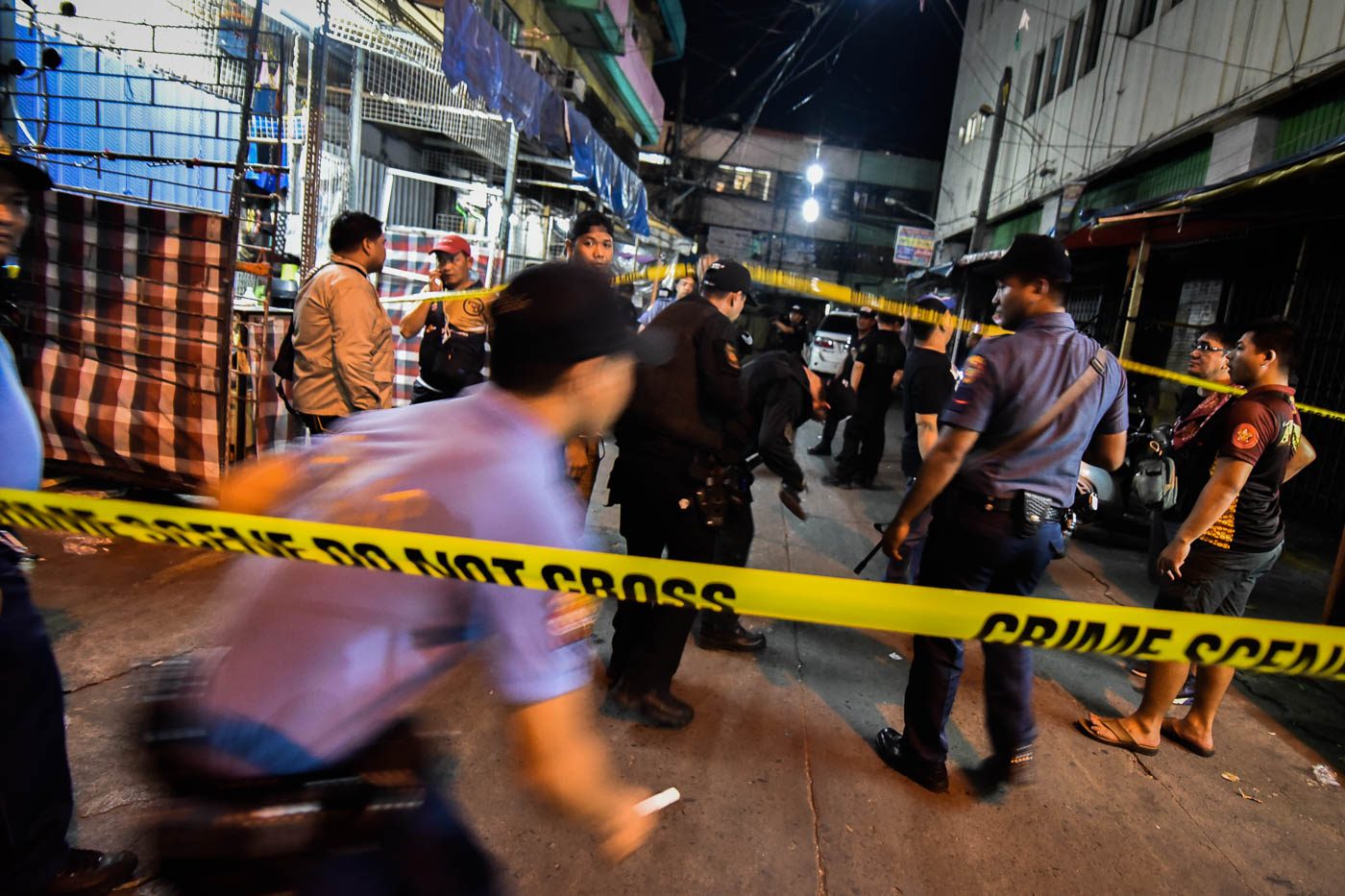SUMMARY
This is AI generated summarization, which may have errors. For context, always refer to the full article.

MANILA, Philippines – The Islamic State, also known as ISIS, IS or ISIL, claimed it carried out two consecutive weekend attacks in Manila on April 28 and May 6, both of which were denied by Philippine officials.
On Saturday, May 6, two consecutive explosions killed 2 people and injured at least 6 others. Like the previous week, ISIS claimed responsibility through its Amaq News Agency.
In an Arabic report released on messaging app Telegram on May 6, Amaq claimed “IS fighters killed five and wounded six after detonating an explosive device in the center of Manila.”
Two photos, allegedly of the attack, were also released on pro-ISIS “Ummah News” channel on Telegram on the same day.
“Both Saturday attacks in Quiapo were by ISIS,” said Rohan Gunaratna, head of the International Centre for Political Violence & Terrorism Research in Singapore. “These are targeted and probing attacks testing the environment for more attacks.”
In a text message to Rappler, Gunaratna warned that “during Ramadan, ISIS is planning to hit Manila and other capitals in the region.” (Ramadan is the Muslim holy month of fasting).
Ramadan this year begins on the last weekend of May – on the 27th or the 28th – and will last a month.
Gunaratna stressed however that under President Rodrigo Duterte, the military and the police have the capability to fight back and “dismantle the emerging ISIS infrastructure in Manila and ISIS entities in Mindanao.” (READ: Filipino millennial joins ISIS in Syria)
Denial and network shutdown
National Capital Region Police Office (NCRPO) chief Director Oscar Albayalde denied ISIS’ claims: “This has nothing to do with terrorism. There is no indication that this was done by a terror group, local or foreign.”
Albayalde added that this is just an ISIS custom of taking credit.
Other officials said that if it were a terrorist attack, it would leave more damage. That’s not quite true with the example of the Jakarta terror attacks last year.
“Government should never dismiss an ISIS claim,” said Gunaratna when asked about the police denial. “ISIS news agency exaggerates on enemy fatalities, casualties and destruction, but does not falsely claim attacks.”
Gunaratna has been studying terrorist networks for decades, and his Singapore think tank continues to follow the evolution of ISIS globally.
Despite its denial, however, the Philippine police asked all telecom networks to shut down their services. Globe announced this Sunday night stating it would last 48 hours, while Smart-Sun released its advisory Monday, May 8.
This is an unprecedented step taken in the past given an imminent terror threat that could use cellular networks to trigger an explosion through mobile devices.
The first time the Philippine government ordered a cellular shutdown was in 2012, ironically, in the same Quiapo area.
Terror alerts pose a difficult balancing act: every government must be able to act secretly for national security purposes, but must also keep the safety of its citizens paramount.
In western countries, victims of terror attacks could sue governments if it becomes clear there was a clear threat and the government failed to warn its citizens.
British government warning
On the same day as the May 6 blasts, the United Kingdom asked its citizens to avoid the Quiapo area.
“Terrorists are very likely to try to carry out attacks in the Philippines,” stated the advisory issued by the Foreign and Commonwealth Office (FCO). “Terrorist groups continue to plan attacks and have the capacity and the intent to carry out attacks at any time and anywhere in the country.”
“Attacks could happen anywhere, including places visited by foreigners, like airports, shopping malls, public transport and places of worship. You should remain vigilant at all times and report anything suspicious to the local authorities.” – Rappler.com
Add a comment
How does this make you feel?
There are no comments yet. Add your comment to start the conversation.